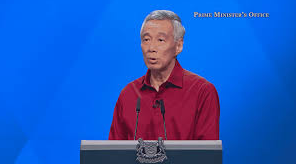SINGAPORE: Singapore’s proposal to raise the retirement age to 65 and the re-employment age to 70 has sparked a lively debate among citizens and exper
SINGAPORE: Singapore’s proposal to raise the retirement age to 65 and the re-employment age to 70 has sparked a lively debate among citizens and experts. By 2030, projections show that one in four Singaporeans will be aged 65 or older, prompting the government to gradually increase the retirement age to 64 and 69 by 2026 and finally to 65 and 70 by 2030. These steps build on the previous retirement and re-employment age increase to 63 and 68, implemented in 2022.
Statistics from last year showed that over 90% of senior workers seeking extended employment were successfully re-employed. Ang Tze Phern, a partner at Rajah & Tann’s Employment Group, noted that extending the retirement age expands the talent pool for businesses while fostering continued participation among older workers. However, he highlighted key considerations, including life expectancy, timing, government support, and employment terms.
Seow Hui Goh, from Bird & Bird’s Singapore Employment Group, supports the move, citing Singapore’s value of voluntary, lifelong work. A recent survey by PAPSG and NTUC U Women and Family found strong support among those aged 50 and above, emphasizing the importance of financial independence and ongoing contribution.
While this plan offers benefits, there are concerns about potential workplace challenges. Ang notes that different values and skill levels among age groups may lead to generational friction, urging employers to anticipate and manage these dynamics. Additional concerns raised by senior workers include age discrimination, rigid work arrangements, and health issues that may impact job performance. The physical demands of certain jobs and health risks associated with aging—like chronic conditions and mobility limitations—are significant factors as well.
To address these issues, the government is set to introduce Workplace Fairness Legislation in 2024 to prevent age-related discrimination and encourage equitable treatment. Employers are encouraged to adopt age-friendly practices, enhance technology solutions, and review hiring policies to support a multi-generational workforce. Various support schemes, including grants, wage subsidies, and training programs, are available to assist both employers and senior employees as they adjust to this evolving workforce landscape.



COMMENTS